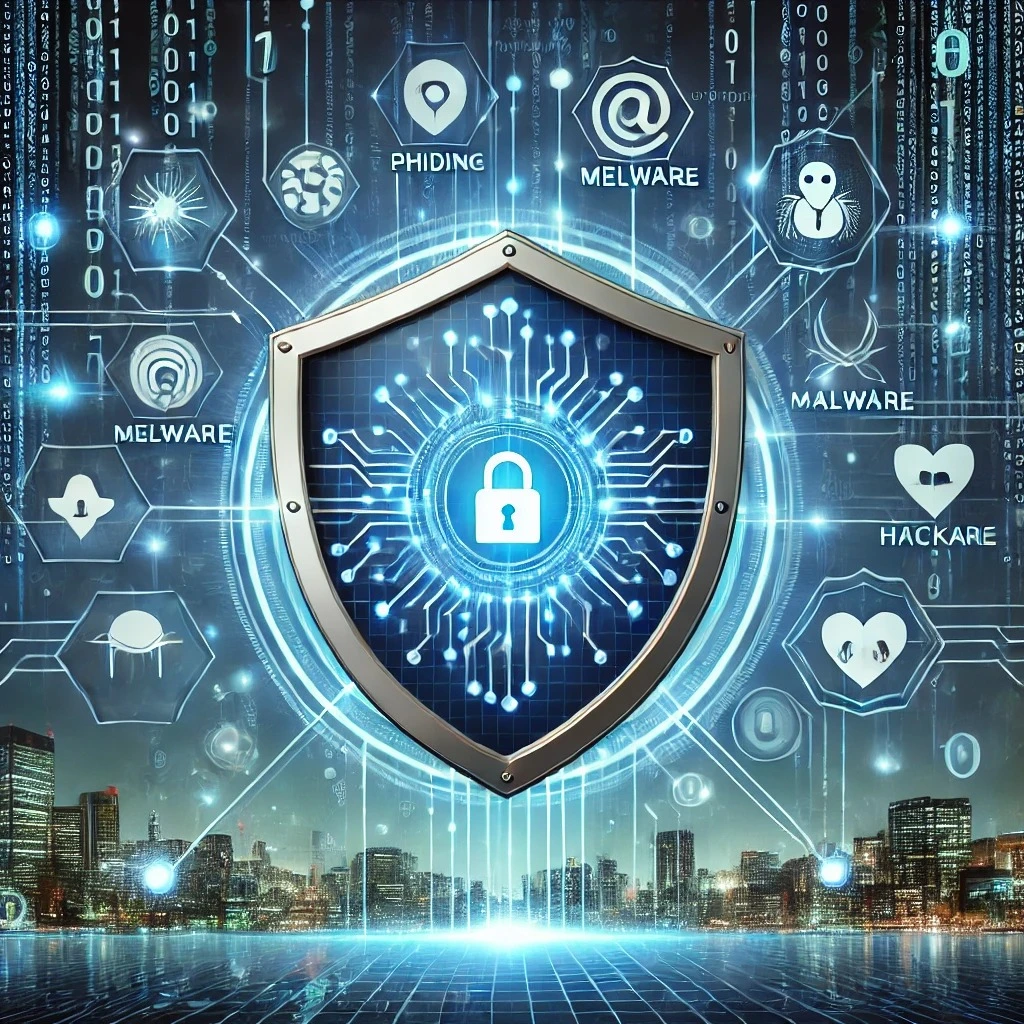Cyber Awareness: Safeguarding Organization and People in the Digital Age

Cyber hazards abound in the linked world of today. Cybercriminals use weaknesses in security to pilfers data, commits fraud, and disturbs services. Protection of private data and a safer online experience depend on both people and companies being cyber savvy. We shall provide basic cyber awareness advice and best practices for everyone to remain safe in this blog.
1. Knowing Cyber Threats
Cyber hazards might manifest themselves as:
- Phishing Attacks – Messages and emails that are meant to fool or confuse recipients/users into divulging private information.
- Malware – Harmful software including spyware, ransomware, and viruses compromising system security.
- Social Engineering – Psychological manipulation techniques applied in social engineering help people to be misled into revealing private information.
- Data Breaches – Illegal access to business or personal information resulting in financial loss and identity theft.
- Weak Passwords – Simple or repeated passwords that let hackers easily get illegal access to accounts.
2. Best Practices in Cyberawareness
Apply these main best practices to reduce cyber risks:
a. Choose strong, distinctive passwords.
- Create difficult passwords with letters, numbers, and symbols.
- Keep from using the same password on several different accounts.
- Stow and control credentials safely using a password manager.
b. Activate Multi-Factor Verification (MFA).
- MFA requires several kinds of validation before allowing access, therefore adding an additional degree of security.
- Enable MFA always on important accounts including email, banking, and cloud storage.
c. Exercise cautiousness about phishing attempts.
- Click on dubious links or avoid downloading attachments from untested sources.
- Check email senders for phishing indicators include grammatical mistakes and frantic requests.
- Alert your IT department or service provider to phishing emails.
d. Maintain Systems and Software Current
- Update your operating system, programs, and antivirus program often to fix security flaws.
- When at all possible, enable automatic updates.
e. Lock Your Wi-Fi Network
- Change the default router password and apply WPA3 or another robust encryption technique.
- Steer clear of connecting to public Wi-Fi networks without running a VPN.
f. Routinely backup your data.
- Save significant documents on several devices, including cloud storage and an external drive.
- Encrypted backups help to guard private information from illegal access.
3. Individual Cyber Awareness
You can personally defend yourself online by following easy yet powerful guidelines:
- Think about what you publish on social media. Steer clear of publishing private information thieves might find useful.
- Set your privacy preferences. Limit data exposure by changing the privacy settings on social media and other web sites.
- Sort through scams. Distance yourself from online scams and be aware of various tricky and sweet offers that appear too good to be true.
- Share knowledge with family members. Teach older relatives and youngsters about internet safety to stop cyberattacks right at home.
4. Cyber Awareness for Companies
Companies have to give cybersecurity knowledge among staff a priority by:
- Organizing frequent cybersecurity training courses.
- Imposing rigorous access control rules.
- Encouragement of staff members to quickly document questionable behavior.
- Running normal security assessments and penetration testing.
5. Maintaining Vigilance and Knowledge
Since cyberthreats are getting updated continuously, one must keep current with the newest cybersecurity trends. To improve your understanding, follow cybersecurity news, join forums, communities, and help with security awareness campaigns.
Conclusion
Cyber awareness belongs to everyone, not only an IT issue. Whether you are an individual preserving personal data or a company defending important corporate information, using solid security policies and remaining alert are absolutely vital. Minimizing dangers and improving online safety can be achieved by being proactive, learning, and giving cybersecurity top attention in daily life.
